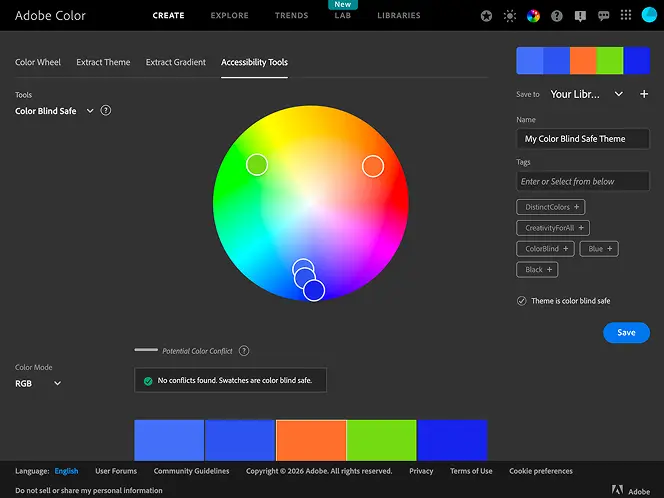These 5 Antioxidants Are Crucial for Your Health – Are You Getting Enough?
Odds are you’ve seen the term “antioxidants” pop up somewhere . . . Or everywhere. Whether on the ingredients list of your favorite acai bowl or fruit smoothie, or seeing an array of supplements that promise an all-important antioxidant...


Odds are you’ve seen the term “antioxidants” pop up somewhere . . . Or everywhere. Whether on the ingredients list of your favorite acai bowl or fruit smoothie, or seeing an array of supplements that promise an all-important antioxidant boost.
But what exactly are antioxidants? What health effects do they provide? And are there specific kinds of antioxidants that you need to be prioritizing in your diet?
This article will detail what antioxidants are, the functions they do for the body, the foods that are good sources of antioxidants, and the 5 types of antioxidants you should be consuming regularly as part of your balanced eating pattern.
6 Foods Science Says Can Help Prevent Cancer (Do You Eat These?)
Let’s start off by explaining what antioxidants are.
What Are Antioxidants?
The term “antioxidant” refers to compounds in the human body that counter the actions of unstable molecules called free radicals. These free radicals are constantly being formed in your body and can be caused by many factors including stress, stimulation of the immune system, environmental toxins, and even exercise.
To increase their stability, free radicals will steal electrons from other cells. When the free radicals are left without something to stop them in their tracks, this sets off a chain reaction that results in the other molecules, such as cells and DNA, becoming damaged, causing a phenomenon known as oxidative stress. Oxidative stress often sets the stage for infections and diseases to develop.
It’s important to have an adequate supply of antioxidants to outnumber the free radicals.
Antioxidants are designed to come to the body’s rescue by giving their electrons to the free radicals. This essentially turns the harmful chain reaction “off,” which then prevents or minimizes cell damage. Therefore, it’s important to have an adequate supply of antioxidants to outnumber the free radicals.
The impact antioxidants have on thwarting free radicals results in many important benefits for our health. Read on to learn more!
Health Benefits of Antioxidants
Oxidative stress can negatively impact the body in many ways, from worsening inflammation, to weakening body tissues and organs, to exacerbating aging and reducing lifespan. Antioxidants offer protective effects against the many serious diseases caused by oxidative stress.
A recent review in the International Journal of Molecular Sciences found that antioxidant-rich diets and supplements reduced risk for thrombosis (the formation of a blood clot inside the blood vessels or chamber of the heart) and overall risk for cardiovascular diseases.
Multiple kinds of antioxidants were also found to inhibit tumor growth and reduce risk for cancer. Additionally, antioxidants have shown improvements in brain health and reducing risk for neurodegenerative diseases like Alzheimer’s.
The human body produces some antioxidants internally as a form of defense, including alpha lipoic acid and glutathione. However, to ensure you have sufficient protection against free radicals and reduce risk for serious conditions, it is important to consume antioxidants from external sources like foods.
Let’s delve into how we can get enough of those powerful antioxidants.
The 5 Antioxidants You Should Be Consuming Regularly
Antioxidants are found in a variety of foods, including fruits, vegetables, coffee, tea, chocolate, and even herbs and spices. Research has shown that particular antioxidants offer considerable benefits to human health and should be prioritized in the diet, including:
1. Resveratrol
Resveratrol is a phytochemical found in berries, grapes, peanuts, cucumber, tomatoes, cocoa, red cabbage, spinach, and red wine. It is an impactful antioxidant which also has anti-inflammatory properties.
Recommended Read: Phytochemicals: Your Guide to Eating the Rainbow (Plus Why You Should)
Studies have shown that resveratrol has the potential to improve longevity and protect against age-related diseases like cardiovascular disease, Alzheimer’s Disease, Parkinson’s Disease, and cancer.
2. Quercetin
Quercetin is a kind of flavonoid that is abundant in many plant-based foods. It is found in onions (these are the highest known source of quercetin), apples, asparagus, berries, cherries, red leaf lettuce, red grapes, green tea, capers, and dill.
Similar to resveratrol, quercetin’s antioxidant capability has shown improvement in heart function and also has anti-inflammatory properties that reduce brain damage and help prevent and improve neurological conditions.
3. Lutein
Lutein is a carotenoid compound that gives a yellow/orange color to foods. It is found in cantaloupe, corn, carrots, bell peppers, pasta, eggs, and fish such as salmon.
Lutein has been found to protect against multiple health conditions such as neurological disorders, microbial infections, and skin irritations. It also has a significant role in improving eye health and preventing eye diseases.
4. Glutathione
Glutathione is a powerful antioxidant primarily made up of the amino acids glutamine, glycine, and cysteine. It has been shown to reduce oxidative stress and limit cell damage in fatty liver disease.
The human body produces glutathione, but the supply may not be adequate and glutathione from foods isn’t generally absorbed well. However, foods rich in particular nutrients can boost glutathione levels in the body, including:
Sulfur-rich/cysteine-rich foods: Sulfur amino acids are necessary for the activation of glutathione. Cysteine is a sulfur amino acid that is a key component of glutathione functions. Foods rich in sulfur include legumes, sunflower seeds, broccoli, Brussels sprouts, cauliflower, kale, garlic, shallots, onions, beef, fish, and poultry.
There is also a supplement form of cysteine known as N-acetyl cysteine (NAC), but it is recommended to speak with your medical provider before taking it.
Selenium-rich foods: Selenium is a mineral that generates the antioxidant activity of glutathione. Foods high in selenium include Brazil nuts, fish, meat, brown rice, and baked beans.
Recommended Read: Learn All About Selenium and Its Health Benefits Here
5. Curcumin
Curcumin is the primary active compound in turmeric. It has been used in many Asian countries in foods like curry and also as a medicinal herb.
Curcumin is a strong antioxidant that reduces inflammation. Research has found that curcumin can help reduce inflammation in conditions like arthritis, improve brain function and potentially reduce tumors.
Many of these antioxidants are also available in supplement forms, so you may be wondering if this is necessary. Let’s take a moment to discuss antioxidant supplementation.
Should You Take Antioxidant Supplements?
Antioxidants are found naturally in many foods and there are several dietary sources of resveratrol, quercetin, and lutein as well as foods rich in nutrients that elevate glutathione levels. Getting antioxidants through food is a safe and delicious way to boost your defense against the harmful effects of free radicals.
There are drug-manufactured supplements called liposomal antioxidants which are designed to model cell membranes and make the delivery of antioxidants more efficient into the tissues and organs they are needed. There are multiple kinds of liposomal antioxidants that have been developed, including liposomal resveratrol and quercetin.
While these supplements show some beneficial health outcomes in early studies, more clinical trials are needed to determine their safety and necessity.
Studies that examined the effects of antioxidant supplements on cancer prevention did not find that the supplement forms reduced cancer risk and may even interfere with the body’s defense mechanisms that prolong life.
Additionally, taking too high doses of antioxidant supplements can result in pro-oxidant effects that worsen oxidative stress, which can have severe consequences including illness and death.
It is worth noting that while curcumin is generally considered safe in turmeric and as a dietary supplement, high doses of supplemental curcumin may cause side effects in certain people.
It is essential to speak with your medical provider to determine if antioxidant supplements are right for you. Always take any antioxidant supplement as directed.
The Takeaway: Antioxidants and Your Health
Antioxidants are compounds that neutralize the effects of free radical molecules. Because free radicals have the potential to damage the body’s cells and DNA and cause disease, it is crucial to have an adequate supply of antioxidant defense.
Antioxidants consistently demonstrate beneficial effects on many health outcomes, including reducing risk for inflammation, heart diseases, cancer, and neurological conditions. The human body produces some antioxidant compounds, but many antioxidants are found in a wide variety of foods.
Studies continue to show that resveratrol, quercetin, lutein, glutathione, and curcumin are antioxidants to consume regularly due to their roles in improving health and reducing risk for many serious health conditions. Additionally, foods rich in sulfur amino acids and selenium can elevate the body’s levels of glutathione and increase its antioxidant functions.
You should make it a priority to get antioxidant-rich foods daily. While pharmaceutical liposomal antioxidants may be more efficient in delivering antioxidants to the body, they are relatively new and more research is needed.
The evidence is mixed on the effectiveness and safety of antioxidant supplements, and there can be severe health consequences associated with consuming these supplements in higher than recommended doses.
And now you know just how important it is to be getting your daily dose of antioxidants!
All included information is not intended to treat or diagnose. Always consult your healthcare provider for medical questions and before beginning or changing any dietary, supplementation, and exercise regimen.

 MikeTyes
MikeTyes 
































